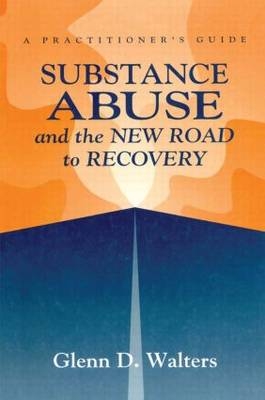
Substance Abuse And The New Road To Recovery
A Practitioner's Guide
Seiten
1996
Taylor & Francis Inc (Verlag)
978-1-56032-428-7 (ISBN)
Taylor & Francis Inc (Verlag)
978-1-56032-428-7 (ISBN)
Provides a guide to the task of conceptualizing, understanding and intervening with persons who abuse substances. The book offers practical suggestions, assessment procedures and change strategies directed at the thoughts, feelings and behaviours believed to support a drug-dependent lifestyle.
Substance misuse is one of the more common, yet baffling, problems confronting the practising mental health professional today. The issues involved in the misuse of substances can be so complex that some practitioners are inclined to avoid working with clients who have been diagnosed with a drug abuse problem.; This new guidebook is designed to assist clinicians with the task of conceptualizing, understanding and intervening with persons who abuse substances. It accomplishes this by offering practical suggestions, assessment procedures, and change strategies directed at the thoughts, feelings and behaviours believed to support a drug lifestyle. Although the approach described in this book utilizes a number of cognitive-behavioural techniques, the approach is unique in the sense that it also deals with the fear of change that frequently interferes with a client's ability to benefit from therapy. It also considers change strategies used by people who have escaped from a drug lifestyle without any type of treatment or formal intervention.; Momentarily arresting the lifestyle is the first step of intervention. This is followed by skill development in which the conditions, choices and cognitions associated with a drug lifestyle are targeted for intervention and change. In the final phase of this approach, the client is engaged in the resocialization process whereby he or she is encouraged to develop ways of thinking and behaving that are incompatible with continued misuse of psychoactive substances. The end result is a concise, yet comprehensive, examination of ways clinicans might facilitate change in persons previously committed to a drug lifestyle.
Substance misuse is one of the more common, yet baffling, problems confronting the practising mental health professional today. The issues involved in the misuse of substances can be so complex that some practitioners are inclined to avoid working with clients who have been diagnosed with a drug abuse problem.; This new guidebook is designed to assist clinicians with the task of conceptualizing, understanding and intervening with persons who abuse substances. It accomplishes this by offering practical suggestions, assessment procedures, and change strategies directed at the thoughts, feelings and behaviours believed to support a drug lifestyle. Although the approach described in this book utilizes a number of cognitive-behavioural techniques, the approach is unique in the sense that it also deals with the fear of change that frequently interferes with a client's ability to benefit from therapy. It also considers change strategies used by people who have escaped from a drug lifestyle without any type of treatment or formal intervention.; Momentarily arresting the lifestyle is the first step of intervention. This is followed by skill development in which the conditions, choices and cognitions associated with a drug lifestyle are targeted for intervention and change. In the final phase of this approach, the client is engaged in the resocialization process whereby he or she is encouraged to develop ways of thinking and behaving that are incompatible with continued misuse of psychoactive substances. The end result is a concise, yet comprehensive, examination of ways clinicans might facilitate change in persons previously committed to a drug lifestyle.
Walters, Glenn D.
Chapter 1 Introduction: In Search of the Path Less Traveled; Chapter 2 An Overview of Lifestyle Theory; Chapter 3 Arresting the Lifestyle; Chapter 4 Skill Development: Condition-Based Strategies; Chapter 5 Skill Development: Choice-Based Strategies; Chapter 6 Skill Development: Cognition-Based Strategies; Chapter 7 Resocialization and Effective Aftercare; Chapter 8 Practice, Application, and Usage;
| Erscheint lt. Verlag | 1.9.1999 |
|---|---|
| Verlagsort | Washington |
| Sprache | englisch |
| Maße | 152 x 229 mm |
| Gewicht | 420 g |
| Themenwelt | Geisteswissenschaften ► Psychologie ► Klinische Psychologie |
| Medizin / Pharmazie ► Medizinische Fachgebiete ► Suchtkrankheiten | |
| Sozialwissenschaften ► Soziologie | |
| ISBN-10 | 1-56032-428-7 / 1560324287 |
| ISBN-13 | 978-1-56032-428-7 / 9781560324287 |
| Zustand | Neuware |
| Haben Sie eine Frage zum Produkt? |
Mehr entdecken
aus dem Bereich
aus dem Bereich
Information • Energie • Materie
Buch | Softcover (2015)
Lehmanns Media (Verlag)
CHF 41,90
Buch | Hardcover (2024)
Kohlhammer (Verlag)
CHF 219,95
Manual zur Dokumentation des psychischen Befundes in Psychiatrie, …
Buch | Softcover (2023)
Hogrefe Verlag
CHF 39,95


